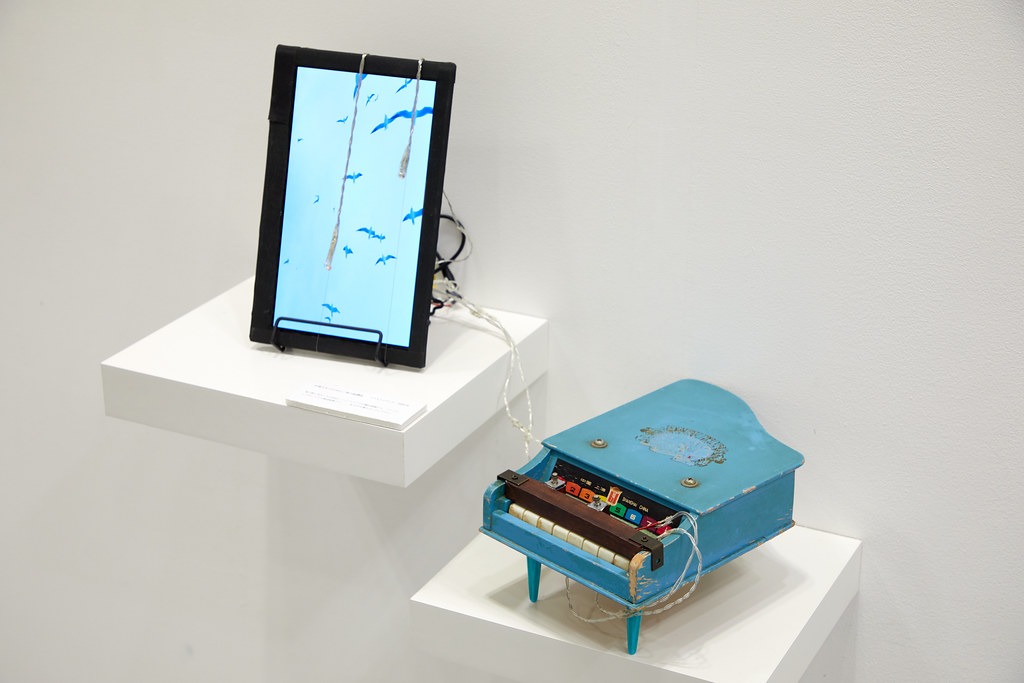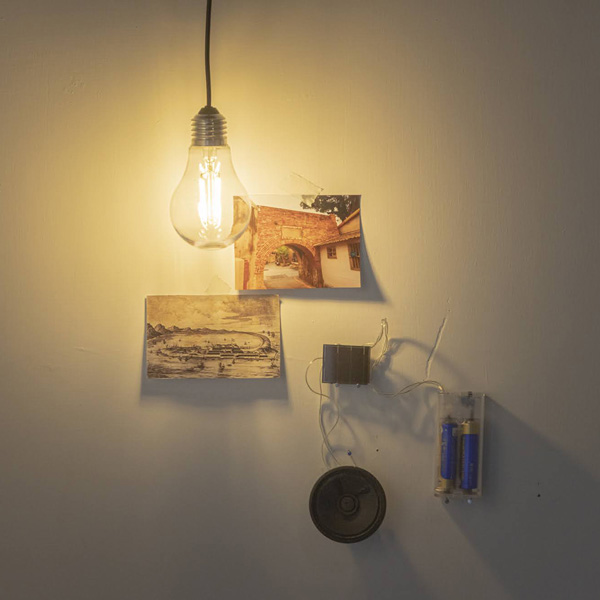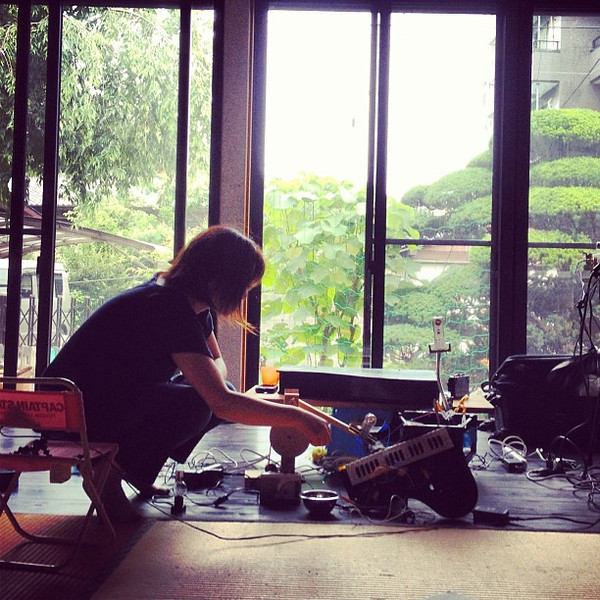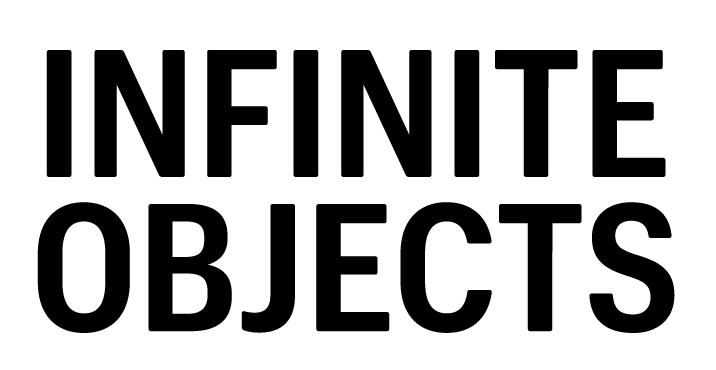Elico Suzuki’s (suzueri) installation project Birds don’t have Borders aims to question the framework of transmission and migration between living beings such as humans and birds, and invisible media such as sound and light.
Opening time: Friday June 30th Closing August 20, 2023
Open to the public: Friday, Saturday and Sunday 11 – 5 pm
Location: Harvestworks Art and Technology Program Building 10a, Nolan Park, Governors Island
Birds don’t have Borders explores the transmission and migration between humans, birds, and intangible media. The installation combines three works, one is lights and sounds work using a primitive visible light communication system which is installed on a hidden staircase . The second are player toy pianos, played by light sensors with bird flock videos placed in front of the window. The system mimics old transmission systems such as punch cards or MIDI. The third are small kinetic objects placed on the hutch, using bird feathers which were collected by Suzuki in NYC.

The other artwork is an installation that uses simple visible light communication, based on research into ghost stories and immigration and quarantine histories in islands of New York Bay. The audio from the cassette player is transmitted to LED lights, and the light is converted back into sound using a solar receiver. In the process of transforming sound into light and light into sound, ghosts during the colonial era would be generated.



Elico Suzuki is an interdisciplinary sound artist based in Tokyo, Japan. She is also active as an improviser and composer under the name “suzueri”. She graduated from Musashino Art University and IAMAS in Japan, and is an adjunct lecturer at Musashino Art University Imaging Arts and Sciences, and the University of Tokyo. She is currently in New York as a fellow of the Asian Cultural Council 2022 NY.
She has presented her work nationally and internationally, including at Experimental Intermedia (US), ISSUE Project Room (US), Goethe Institute Boston (US), NTT InterCommunication Center (Japan), LUFF Festival (Switzerland), Audiograft Festival (England), Festival Tsonami (Chile), and others. https://suzueri.org
PRESS QUOTES
1. Video for 3331 art fair, Tokyo – Curator’s Voice byTomoko Yabumae (Curator, Tokyo Metropolitan Art Museum)
“Elico Suzuki (suzueri) is an artist in a rather strange position in Japan. She is also active in the fields of experimental music and improvisation, but I am very interested in the fact that she does not seem to belong to any field. What she is interested in and what she does is difficult to grasp from the perspective of our recognition of art and the music.
— Her works are based on her own stories and historical research, but they always have some kind of poetic or fascinating entrances that we can relate to. Her handmade devices allow us to relive the moment when a poem is born, and she also provides an entry point for each viewer, inspired by a very small world, a small phenomenon that we might otherwise miss. (Translate by Elico Suzuki)”
2. Review of the album’Ftarri de Solos’ by Connor Kurtz, The Free Jazz Collective Blog
https://www.freejazzblog.org/2018/03/ftarri-fifth-anniversary.html
“This is, in my opinion, one of the best solo improvisations I’ve heard in a while. What makes it so special comes down to atmosphere and its conceptions: the sounds of clockwork are so natural, simple and understandable. They are something we can easily imagine, without mistaking them for natural musical sounds. Similarly, the piano is one of the most memorable instruments in the world, due to its long history and soothing, but unique, timbre. The repetitions place the listener in a musical world, in a room, which they can very easily understand – and suzueri modulates that world with great nuance. She doesn’t have the listener in great confusion or have them grasping for words, but she does play with their expectations and conceptions in a way which feels surreal. It’s because we can understand what and why makes the music feel natural while simultaneously understanding what makes it feel unnatural but not understanding why that it manages to perfectly incapsulate this surrealist feeling. In addition to this, it manages to maintain a sense of beauty and elegance, coming much closer to a daydream than a nightmare.”
3. Review of the album’Toy Piano Sokubaikai (2022, zappak) by Connor Kurtz, harmonic series blog
https://www.harmonicseries.org/p/121
“suzueri creates home-made electric devices that are capable of sounding or triggering the piano on their own, whether it be by pressing the keys in a regular rate or by interacting with the instrument’s strings. The result of this, from the CD listener’s perspective, is an absolute uncertainty on which sounds are the product of machines and which are the immediate outcome of human decisions or creative urges. The mentality of the devices and the performers become interlinked, giving the live recording a string of human-machine logic which is as strange as it is exciting to follow.”






